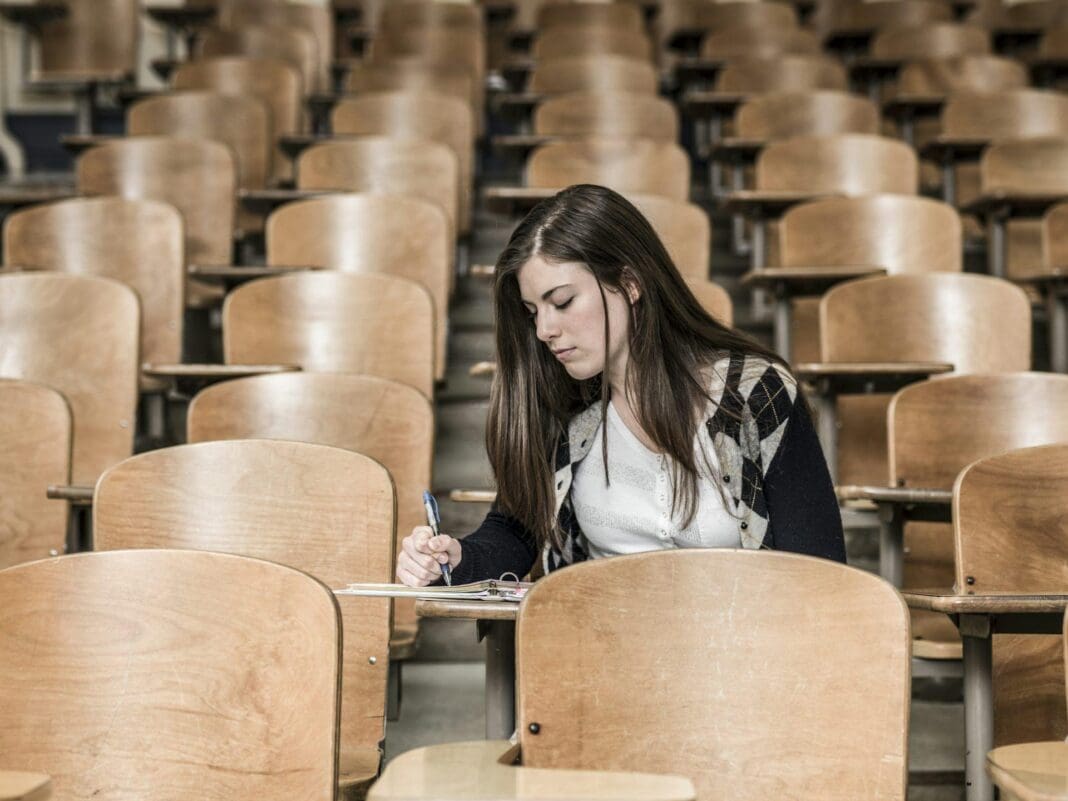Years ago, after taking an Earth science class, I found myself looking at the world differently. It was the 1990s, and lakes in Wisconsin where I lived at the time were beginning to freeze later in winter and thaw earlier in spring, and flowers seemed to bloom a bit earlier.
That geology class helped me understand the gradual warming that was underway, warming that has accelerated since then.
People are more likely to believe an explanation when they see direct evidence of it. In the U.S., the percentage of people who recognize that global warming is happening is higher in counties that experienced record high temperatures in the previous decade. But understanding what’s happening and why also matters. That’s because people’s existing knowledge shapes how they interpret the evidence they see.
Education level and political affiliation are both known to be strong global predictors of concern about climate change.
But does higher education actually create climate concern? As an anthropologist and a researcher in computational social science, I and my colleague Ben Horne set up a study to try to answer that question.
In our study, we used Census Bureau data on the percentage of the population with at least a bachelor’s degree in 3,048 U.S. counties, NOAA data on recent warming by state, and Yale climate opinion survey data. We wanted to find out whether climate concern increases as a product of education and recent warming.
We found that in many southern states − such as Alabama, Mississippi and Texas − the correlation between the percentage of bachelor’s degrees at the county level and climate concern was weak. Higher education levels didn’t seem to make much of a difference in how concerned people were about climate change.
However, in northern states − such as Maine, Vermont and Michigan − the education effect was stronger. We believe this difference is in part because climate change is more perceptible in colder states. A 1-degree temperature rise in Florida may not feel significant, whereas in Maine or Wisconsin, it would be more noticeable as winters became shorter and signs of spring came earlier.
We believe the results suggest that higher education helps people who are exposed to perceptible warming shifts better understand the changes they are experiencing; it’s the pairing of both that makes the difference.
We wondered whether political ideology might be driving the trends we were finding. Southern states also tend to be more politically conservative.
When we controlled for political leanings, however, our analysis found that the education effect appeared to be mostly influenced by whether people had experienced perceptible warming in recent years.
There were two outliers: Despite being cold states that have experienced the effects of climate change, North and South Dakota had low education effects when it came to climate concern. One possible explanation is that fossil fuels are central to their economies, shaping local attitudes toward climate change.
Nationally, our study suggests that higher education leverages people’s experience with climate change to increase their climate concern. It isn’t just having a college education alone, as the different results from warmer and colder parts of the country show. It is experiencing rising temperatures that makes the difference. The more perceptible the warming, the greater the effect.
A generation ago, climate change seemed to be more theoretical prediction than common experience for most people in the U.S.
This may be part of the reason why a sense of urgency has been slow to develop, even though three-quarters of Americans recognize that global warming is happening. Generations that grew up in the mid-20th century, when seasons and climate seemed constant, had little reason to expect change.
Today, as climate change accelerates, people are experiencing increasingly dangerous summer heat waves and extreme weather. Surveys show climate concern has increased in U.S. counties that have recently experienced warmer winters or extreme temperatures, and climate-driven disasters have increased public concern.
Younger generations may see the world differently. For them, climate change has been a reality in their developing years. Given their personal experiences and interest in science, we believe higher education will have a powerful effect.
This article is republished from The Conversation, a nonprofit, independent news organization bringing you facts and trustworthy analysis to help you make sense of our complex world. It was written by: R. Alexander Bentley, University of Tennessee
Read more: Helping teachers learn what works in the classroom − and what doesn’t − will get a lot harder without the Department of Education’s Institute of Education Sciences Politicians step up attacks on the teaching of scientific theories in US schools 5 characteristics of an effective science teacher – from a researcher who trains them
R. Alexander Bentley does not work for, consult, own shares in or receive funding from any company or organization that would benefit from this article, and has disclosed no relevant affiliations beyond their academic appointment.














